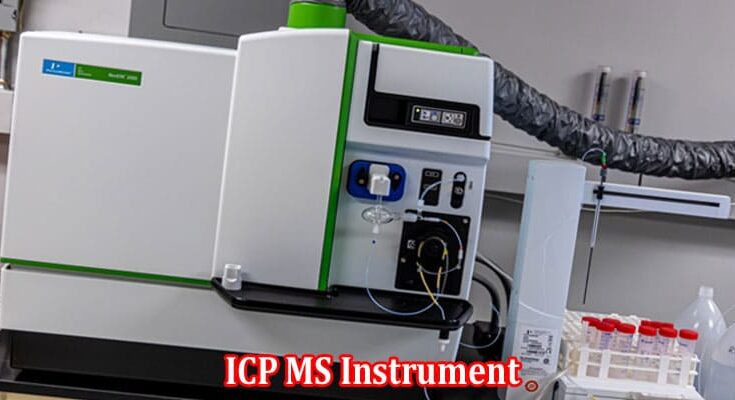Are you looking for an instrument that can provide precise analysis results? If so, an ICP MS instrument may be the perfect choice for you. ICP MS, or inductively coupled plasma mass spectrometry, is a powerful analytical technique used to identify and quantify elemental and isotopic compositions in a wide range of samples.
Choosing the suitable ICP MS instruments can help ensure that you get the most precise analysis results possible. This blog post will discuss the different factors to consider when choosing an ICP MS instrument and tips to help you find the right one for your specific needs.
Why Precise Analysis Matters
Precise analysis is essential for various industries, from environmental testing to pharmaceuticals. Agilent ICP-MS provides two different configurations to ensure that users get the most accurate and reliable results possible.
The single quadrupole ICP-MS can address a wide range of typical ICP-MS measurements. In contrast, the triple quadrupole ICP-MS offers increased resolution and the ability to resolve problematic interferences.
The single quad configuration is simple and allows for fast, streamlined analysis of typical ICP-MS applications. With its excellent performance and flexibility, it can also be used to tackle more demanding applications.
Triple quadrupole ICP-MS offers increased resolution, allowing users to identify trace elements that may have gone undetected with the single quad configuration. This ensures that users get the most precise analysis results possible.
Types of ICP MS instruments
Agilent single quadrupole and triple quadrupole ICP-MS systems use innovative technology to deliver excellent sensitivity. These analyzers simplify measuring samples and generating results.
Agilent ICP-MS Accessories include cones, such as Ni or Pt tipped sampler and skimmer; ICP-MS Easy-fit peristaltic pump tubing, sample uptake, drain, and gas line tubing; ICP-MS nebulizers and accessories, including glass concentric and PFA inert self-aspirating nebulizers; and Scott double pass spray chamber supplies, available in stainless steel, PFA and PEEK.
The range of torches and Torch supplies for Agilent ICP-MS includes long-life quartz torches, bonnets, Platinum shields, and RF work/load coils. Agilent ICP-MS Software can help guide workflows and control remotely.
The importance of proper calibration
Proper calibration of any ICP MS instrument is essential for accurate and reliable analysis. Without it, results will be distorted and inaccurate. It is necessary to calibrate the ICP MS instrument before every test to ensure that it works correctly and gives the right results. This is done by calibrating the instruments in accordance with the manufacturer’s instructions.
Different parameters, such as current and temperature, must be adjusted until they match the manufacturer’s standards. Calibration also helps identify instrument problems such as leaks or drift. By routinely checking the instrument’s accuracy, the operator can detect problems before they become a problem. In addition, it ensures that any changes in performance are noted and addressed promptly, thus increasing the reliability of the test results.
Considerations when choosing an ICP MS instrument
When selecting an ICP MS instrument, it is essential to consider the analysis’s requirements. The instrument should be able to provide accurate, precise results with minimal background noise and contamination. It should also be able to detect and quantify a wide range of elements and compounds in samples. Other essential factors to consider include the following:
- Sensitivity: The instrument’s sensitivity is important because it determines how accurately the elements and compounds can be detected and quantified.
- Signal-to-Noise Ratio: The signal-to-noise ratio (SNR) is essential when considering an ICP MS instrument because it measures how much of the instrument’s signal is a crucial element or compound versus background noise. A higher SNR indicates better detection and quantification accuracy.
- Number of Analyzers: Different instruments can have different numbers of analyzers for various applications. Depending on the needs of the analysis, more or fewer analyzers may be required.
- Sample Introduction System: The sample introduction system is responsible for introducing the sample into the ICP MS device. Different instruments can use other methods, such as direct introduction, dynamic reaction cell technology, and more.
- Internal Calibration Source: An internal calibration source ensures that the instrument operates correctly and produces accurate and precise results.
- Computer Interface: Many modern ICP MS instruments come with a computer interface that allows users to access data in real time and control the instrument remotely.
- Choosing the right ICP MS instrument is essential for achieving accurate and precise results. Considering all of these factors is important when selecting an instrument for your specific needs.
Tips for achieving precise analysis results
- Invest in a reliable ICP MS instrument. When selecting an ICP MS instrument, make sure you’re investing in one that is of high quality and has been tested and certified by the manufacturer.
- Ensure your ICP MS system is regularly serviced and maintained. Regular maintenance of your ICP MS instrument will ensure it remains in optimal condition, thereby reducing any potential errors in analysis.
- Ensure proper sample preparation. Proper sample preparation is key to achieving precise results. Use clean, uncontaminated samples and perform sample homogenization where necessary.
- Utilize a multi-channel ion detector. A multi-channel ion detector can help achieve precise analysis results, as it allows simultaneous measurement of multiple ions present in the sample.
- Use proper calibration procedures. Adequate calibration of your ICP MS system is essential for ensuring precise results. Calibrate your instrument using standards specific to your samples, and use regular calibration checks to identify any inconsistencies.
- Choose the right software package. When analyzing your data, choose a software package that best suits your needs. Consider user interface, cost, and accuracy when selecting a software package for your ICP MS system.
- Run quality control tests. Quality control tests are necessary to identify any potential errors in analysis and ensure accurate results. Perform periodic quality control tests on your ICP MS system to ensure consistent and precise results.
Conclusion
Choosing suitable ICP MS instruments for precise analysis is an important decision. Many types of instruments are available, and careful consideration should be taken when selecting. Considerations include the type of application, the sample size, and other factors that may affect the accuracy of results. It is also essential to ensure that the instrument is calibrated correctly and maintained to provide accurate analysis. By taking these steps, you can ensure that you get the most precise analysis results possible.

Caroline is a dedicated writer with a passion for keeping readers informed. Specializing in providing the latest news updates and unbiased reviews, she strives to deliver accurate and insightful content. With a keen eye for detail and a commitment to journalistic integrity, Caroline ensures that her readers are always well-informed. Stay tuned for her latest articles to stay up-to-date on current events and trends.




